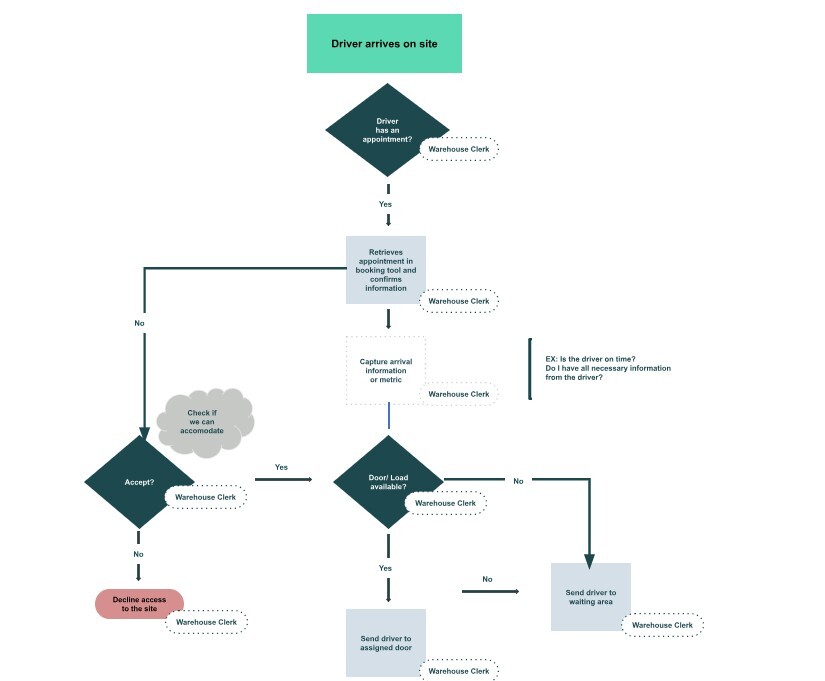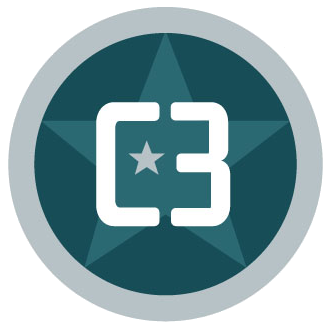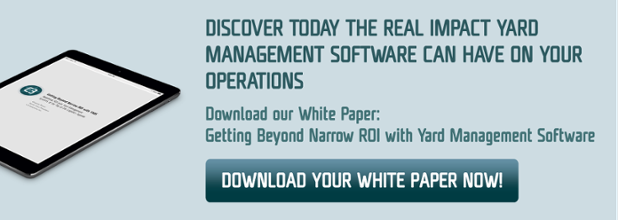How a Business Rules Engine Can Deliver Value to Your Yard

Businesses require clear policies and standard operating procedures (SOPs) to provide straightforward direction to the teams and ensure consistent execution.
These policies or rules help ensure consistency, efficiency, and compliance, irrespective of team changes, expansions, and acquisitions.
When automating operations, having decision-making built into workflows is the starting point that sets up the base.
Companies use a Business Rules Engine (BRE) to do this effectively with the help of technology.
What Does a Business Rules Engine Do?
A business rules engine is a system that lets you:
- Define business-specific rules
- Manage and update those rules
- Execute them automatically during workflows
Think of it as the brain behind process automation, which decides the workflow of what happens and when a specific condition is met.
Key Features to Look For in a Business Rules Engine
If you're choosing a rules engine, ensure it includes all the tools your team needs now, and in the future. Here's what to consider:
1. Easy Rule Creation and Management
You should be able to set rules that match your business needs. Importantly, business users or analysts need to create and change these rules easily without needing developers.
2. Automated Rule Execution
Once set up, the engine should automatically apply these rules within your processes. For example, you could check where a vehicle is supposed to be directed based on what it is carrying and the criticality of that material.
The engine should also connect to other supply chain solutions and workflows. This is needed so that the BRE gets the latest information, which is also in sync with the other systems. Hence, rules are followed everywhere, not just in one part of the system.
3. Flexibility to Change Quickly
Markets, customers, and regulations change all the time. Your rules engine should let you react quickly without rewriting software code. When a policy or regulation updates, you should be able to change your rules in minutes, not weeks.
It's also essential that the system can handle complex rules and scale up to support large volumes of decisions as your business grows.
Using a Business Rule Engine in your Yard
Yards are complex environments that require fast but accurate decisions. Managing a busy yard isn't easy. Trucks arrive unexpectedly, trailers go missing, and dock schedules get disrupted. It's a daily juggling act that can lead to delays and increased costs.
But what if there were a way to automate decisions and simplify operations? That's where a Business Rules Engine (BRE) comes into play for yard management.
It's like having a digital manager who ensures operations follow set guidelines without manual intervention. For instance, when a rule says "dock 5 for inbound refrigerated trailers," the BRE makes sure that happens each time without anybody having to remember or even decide manually.
Yard operations can have numerous use cases in the yard, such as:
1. Trailer Prioritization Rules
Example:
A logistics coordinator wants to automatically prioritize perishable goods trailers during peak hours or rush shipments from high-priority clients.
Rule Example: “If trailer type = ‘refrigerated’ AND current time between 6 AM–9 AM, THEN assign to priority dock doors 1–5.”
➡ No-code rule editors let users define this in plain language or drag-and-drop interfaces.
2. Gate Access Rules
Example:
Security or yard managers can create rules for automated gate entry based on trailer ID, carrier reputation, or scheduled time windows.
Rule Example: “If carrier = ‘TrustedCarrierX’ AND arrival time within 30 minutes of appointment, THEN allow gate access automatically.”
➡ This reduces manual check-ins and improves flow while maintaining control.
3. Dwell Time Threshold Alerts
Example:
Create custom alerts when a trailer exceeds its dwell time.
Rule Example:
“If trailer dwell time > 3 hours AND status ≠ ‘loading’, THEN notify yard manager and flag in dashboard.”
➡ Allows users to easily tweak thresholds based on SLA requirements or seasonal surges.
Traditionally, these decisions are made manually, leading to inconsistencies and inefficiencies. A BRE automates these decisions, ensuring consistency, speed, and accuracy.
4 Benefits of Implementing a BRE in Yard Management
A well-designed business rules engine can greatly impact your yard operations. Here are the top 7 benefits of using a BRE in the yard:
1. Consistent Decision-Making
A BRE makes decisions based on predefined rules, eliminating guesswork. This consistency ensures that operations run smoothly and predictably. It ensures that every decision follows the same rules, eliminating human errors.
2. Increased Efficiency
Automating routine decisions in the yard frees up staff to focus on more valuable tasks, leading to faster processing times and reduced delays.
3. Reduced Errors
Manual processes are prone to mistakes. Automating decisions minimizes errors, leading to improved accuracy in operations.
4. Scalability
As your operations grow, a BRE can easily adapt by updating or adding new rules, ensuring the system scales with your business.
In short, a business rules engine lets you embed logic into your workflows. It helps you make faster, smarter, and more consistent decisions, without constant manual involvement.
How C3 Solutions' Business Rules Engine Adds Value to the Yard
C3 Solutions offers a robust BRE integrated into its Yard Management System (YMS). These BRE processes can also be customized to suit the specific needs of your business. Here's a list of what BRE in C3's Yard Management Solution can do:
Automated Task Assignment
C3's BRE automatically assigns tasks to yard drivers based on real-time data. This ensures optimal resource use and reduces demurrage by minimizing idle time.
Real-Time Decision Making in the Yard
The system processes data instantly, allowing for immediate decisions regarding trailer placements and dock assignments. Combined with other yard automation, like ANR, it can make the yard touchless.
Customizable Rules to Match all the Business Needs
C3's Yard Management System is completely flexible. Its BRE allows managers to define and modify rules easily without any coding, ensuring the system aligns with any changes in the requirements.
Integration with Other Systems
C3's BRE seamlessly integrates with other systems, such as Warehouse Management Systems (WMS) and Transportation Management Systems (TMS), providing a unified platform for operations. So, when a trigger can be generated from an integrated system, C3's YMS can make decisions based on that trigger, providing a fully integrated yard.
Improved Compliance for the Business
C3's YMS allows complete transparency and a ready environment. By enforcing standardized processes, C3's BRE helps ensure compliance with industry regulations and company policies.
Companies that have implemented C3's BRE have reported significant and tangible improvements, such as:
- Dock Utilization: Increased by up to 20%
- Yard Truck Reduction: Decreased by 25%
- Shunter Productivity: Boosted by 30%
- Detention Fees: Cut by 90%
C3 Solutions' BRE is different from any other YMS on the market. It offers flexible, real-time decision-making that is easily interoperable with legacy systems. By implementing C3's YMS, yard managers can streamline operations, lower costs, and improve productivity.
Ready to optimize your yard operations? Contact C3 Solutions today to learn how our Business Rules Engine can make a difference.


